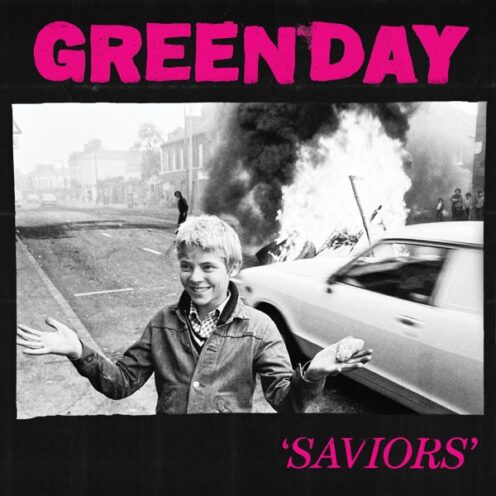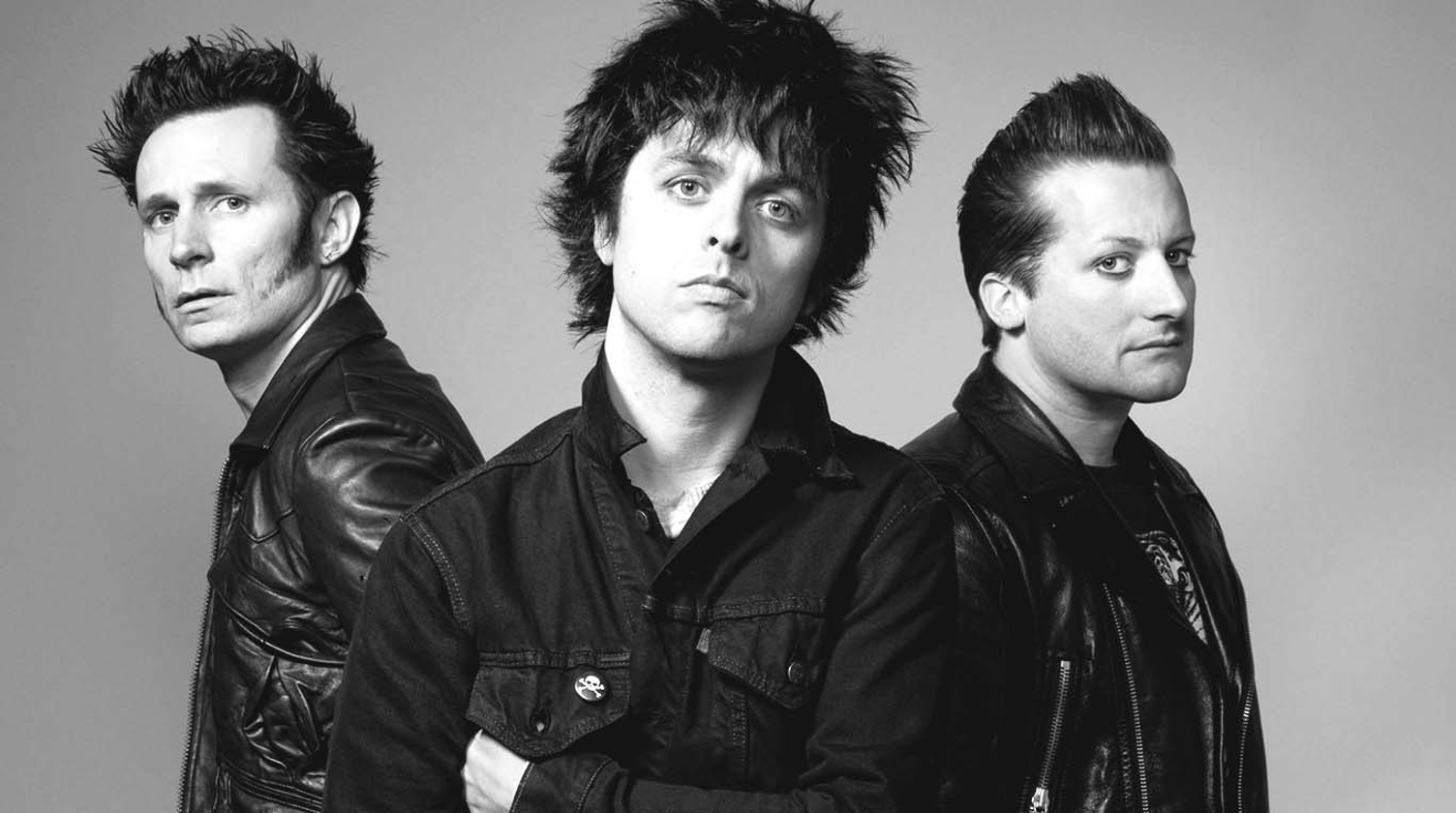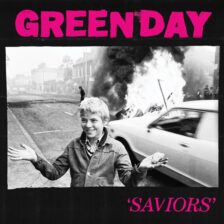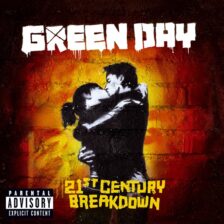The 14th studio album by pop-punk legends, Green Day, called Saviors, lives up to its title as it very well may have saved the band from going down the unfortunate path that has haunted so many other legendary bands in their careers. While some bands have had trouble living up to the legacy of their past work, Green Day were getting dangerously close to this label after a bit of floundering after American Idiot. Sure, there were a few nuggets of gold to be found every now and then, but looking at the large body of work after American Idiot was a bit of a mixed bag. You had the strong 21st Century Breakdown record, followed by the hit or miss trilogy of ¡Uno! ¡Dos! ¡Tré!, then 2016’s decent Revolution Radio, only to be succeeded by arguably the weakest LP in Green Day’s discography, 2020’s Father of All Motherfuckers.
Read More “Green Day – Saviors”Review: Green Day – Father Of All…
When I last sat down to write about a Billie Joe Armstrong project, I put my thoughts down on a band called The Longshot. What I wasn’t expecting from the new Green Day album, called Father of All Motherfuckers, is for that aforementioned side project to surpass the quality of the much more established brand. But alas, on Green Day’s 13th studio album, they have taken a few steps backward as they try and regain their footing. At first, it was tough for me to put my finger on where it went wrong on this record, but after re-listening to the album a few more times since its release date, it just isn’t as strong as I have come to expect from the pop-punk giants. Produced by Butch Walker, Chris Dugan, and Green Day, the album should have been a momentous creative igniter for the band to re-solidify themselves right before their most prominent touring stint in recent memory (the Hella Mega Tour with Weezer and Fall Out Boy). But instead, the final mixes of this record feel like they are missing a key ingredient in what made the band such a fun time in the first place.
Review: The Longshot – Love Is For Losers
Side projects, in general, are healthy for the long-term well being of a band as it allows the multiple band members to experiment with new sounds and ideas that may not be best suited for the main unit. That being said, it’s hard to find too many differences between Billie Joe’s new side gig, The Longshot, and Green Day. Billie Joe sounds just as confident as ever on the new LP and it initially reminded me of the sleek and polish of another recent side project (Foxboro Hottubs) but with more production sheen on The Longshot’s debut album.
The Longshot is comprised of guitarist Kevin Preston, drummer David Field, and bassist Jeff Matika (who has toured extensively with Green Day). “Love is for Losers” spans over 11 easily digestible tracks, with a total running time of 32 minutes. Kicking off the set with “The Last Time” Billie Joe croons, “I’ll give you all my blood, til it’s a waste of time/If that’s not good enough, you’re always on my mind.” These tongue-in-cheek lyrics are what we have grown to expect from our fearless pop-punk leader, yet it’s also a good album disclaimer of “take it or leave it.”
Review: Green Day – Revolution Radio
A lot of people probably thought Green Day were down for the count leading into 2004. They’d had a tumultuous decade of success in the 1990s, capturing the sound of a generation on Dookie and then writing the definitive graduation song with “Good Riddance (Time of Your Life).” Their catalog was stacked with hit singles and earworm hooks, but they’d ushered in the start of the new millennium with little fanfare. 2000’s Warning got decent reviews but changed their sound in ways fans probably weren’t expecting and weren’t terribly psyched about by being more folk-pop than pop-punk. That, combined with the lack of a world-conquering single and the fact that Napster was busy taking a hatchet to the record industry, meant that Warning only ever went gold. Not bad for your average band, but not so great for a group that had gone either multiplatinum or diamond on their three previous albums. Add the 2003 theft of the record that was supposed to the follow-up to Warning, and Green Day seemed washed up and left for dead.
Review: Green Day – American Idiot
I still remember the first time I heard American Idiot in full. It was my 14th birthday, and I’d been waiting for the better part of two months to finally give the album a spin. The record dropped on September 21, but as was the norm when I was young, broke, and trying to cut back on downloading, I often had to wait awhile to buy CDs or ask for them as gifts. Such was the case with Green Day’s first full-length album in four years, which I scrawled on my birthday list between other 2004 albums like Keane’s Hopes and Fears and Sister Hazel’s Lift.
Review: Green Day – 21st Century Breakdown
The evolution of musical artists is an enigma in itself. While it can often polarize the fan of a beloved artist, it is absolutely fundamental for an artist to be able to grow, particularly as they become older and their longevity hinders on their next move. Surely it doesn’t always work, and many times, bands fail to ignite a fire with a large audience and are forced to step back creatively in order to earn their fans’ ears back. The approach is an anomaly since selfish listeners can’t budge and try out a drastic (or not so drastic) change, simply based on the band members’ decision to explore new depths of sound.
In 2004, Green Day did precisely what they had to do in order to maintain relevancy. There was no other choice after the mild success of 2000’s Warning, arguably their most inventive and shape-shifting album left the band in a questionable state. Following the lead of The Who down to almost a ‘T’, the band wrote a massive punk rock opera that followed the vaguely metaphorical tale of a youth living two different lives in a troubled modern era. The success paved the way for Green Day to distance themselves from their bratty punk rock past and move towards crafting ambitious efforts that rang of fierce, unsavory lashings at politics and religion, all while weaving a yarn that while still punk rock in all its context, allowed the band to develop a gratuitous sense of self while expanding their trademarked brand of punk rock.
Read More “Green Day – 21st Century Breakdown”











